The Quick & The Dead: Christ, Judge of the Æons (Part I)
An exegetical survey of the Judge of Mankind...
“The fear of the LORD is the beginning of wisdom: and the knowledge of the holy is understanding.”
— The Book of Proverbs 9:10 KJV
Hit the Tip Jar and help spread the message!
This post contains affiliate links, which means I may receive a commission or affiliate fee for purchases made through these links.
Unlock the mysteries of Biblical cosmology and enrich your faith with some of the top rated Christian reads at BooksOnline.club.
Use promo code SCIPIO for 10% off your order at HeavensHarvest.com: your one stop shop for emergency food, heirloom seeds and survival supplies.
Related Entries
What we confess about the Messiah’s reign determines what we expect of history.
If the Christ who now reigns is also the Christ who judges, then the eschaton is not the beginning of His dominion, but the consummation of His verdict. The New Testament’s blazing vision of the wrathful Lamb in Revelation merely concentrates what the whole Canon already declares — that the Messiah is the executor of God’s wrath, the Judge who puts the fear of God into the nations of men. This becomes even more portentous when we draw attention to the fact that, as I have covered at length in Tractatus III & IV, The Son is not merely the Messiah, but the Messenger (or Angel) of The LORD: not only does The Son execute The Father’s justice under the New Covenant, but so too did He under the Old. Nor is His dominion a static one: like the stone “cut out without hands” that smashes the empires of men and “became a great mountain, and filled the whole earth” (Dan. 2), His kingdom is one which is constantly advancing, constantly subjugating His foes.
Daniel’s imagery gives us the blueprint of that kingdom, and John’s vision concentrates what the Psalter declares from the start: the Eternal Son is the executor of God’s wrath, the Judge of the Ages (emphasis mine):
9 Thou shalt break them with a rod of iron; thou shalt dash them in pieces like a potter’s vessel.
10 Be wise now therefore, O ye kings: be instructed, ye judges of the earth.
11 Serve the LORD with fear, and rejoice with trembling.
12 Kiss the Son, lest he be angry, and ye perish from the way, when his wrath is kindled but a little. Blessed are all they that put their trust in him.
— Psalm 2:9-12 KJV
Two observations press themselves upon the reader. First, the language bind rulers now — the text resists any scheme that defers the Son’s claims over the nations to a remote dispensation. Peter, quoting Psalm 2, applied it directly to Herod, Pontius Pilate, the Judeans, and the events surrounding Jesus’s Crucifixion (Acts 4:25–28). Second, devotion and healthy dread are not opposed to one another; on the contrary, they are inseparable. This Psalm establishes a political dimension to the Messianic reign: the rulers of mankind are already under summons from the enthroned Christ.
Psalm 110 intensifies this profile by joining priest, king, and judge in one person:
5 The Lord at thy right hand shall strike through kings in the day of his wrath.
6 He shall judge among the heathen, he shall fill the places with the dead bodies; he shall wound the heads over many countries.
— Psalm 110:5-6 KJV
If these acts belong uniquely to the God of Israel — as we will see elsewhere — and if the Messiah performs them, then the identification of the Messiah with YHWH is not a later dogmatic accretion, but a logical and exegetical conclusion from the text. Jesus Himself invokes this Psalm to confound His interrogators (Matt. 22:44, Mark 12:36, Luke 20:42). Peter takes up the same verse at Pentecost and concludes, “Therefore let all the house of Israel know assuredly, that God hath made that same Jesus… both Lord and Christ” (Acts 2:34–36). In the most critical passage on the resurrection of the dead and the timing of the final advent of Christ, Paul’s echoes that promise: “For he must reign, till he hath put all enemies under his feet” (1 Cor. 15:25), the last enemy being Death.
The Apostles’ hermeneutic is evident from their persistent citation of these Psalms and their repeated insistence that what they describe is a present reality — not a distant one.
The same scepter that dashes rebels stabilizes the world; for those who love His Name welcome His court (emphasis mine):
10 Say among the heathen that the LORD reigneth: the world also shall be established that it shall not be moved: he shall judge the people righteously.
11 Let the heavens rejoice, and let the earth be glad; let the sea roar, and the fulness thereof.
12 Let the field be joyful, and all that is therein: then shall all the trees of the wood rejoice
13 Before the LORD: for he cometh, for he cometh to judge the earth: he shall judge the world with righteousness, and the people with his truth.
— Psalm 96:10-13 KJV
That refrain in v. 13 — righteousness and his truth — is of particular significance in this discussion. Psalm 96 describes the nature of the Earth’s judgement by YHWH, and as we will see shortly, John’s Gospel declares that the Father has entrusted that task to the Son.
— Christ in Majesty. National Basilica of the Immaculate Conception, Washington, D.C.
“Come, ye children, hearken unto me: I will teach you the fear of the LORD.”
― Psalm 34:11 KJV
If Psalm 2 and Psalm 110 establish the nature of the Messianic reign, then the prophetic visions of The Branch and the Root of Jesse/David specifies, in no uncertain terms, that Judge’s identity. The Prophet Micah (740-670 BC) notes His place of birth (emphasis mine):
But thou, Bethlehem Ephratah, though thou be little among the thousands of Judah, yet out of thee shall he come forth unto me that is to be ruler in Israel; whose goings forth have been from of old, from everlasting.
— The Book of Micah 5:2 KJV
Not only would this King emerge from Bethlehem, but from Eternity: He who is from everlasting cannot merely be a physical descendant of David.
From that premise Isaiah names the manner of His reign, one which bears striking resemblance to Psalm 96 (emphasis mine):
1 And there shall come forth a rod out of the stem of Jesse, and a Branch shall grow out of his roots:
2 And the spirit of the LORD shall rest upon him, the spirit of wisdom and understanding, the spirit of counsel and might, the spirit of knowledge and of the fear of the LORD;
3 And shall make him of quick understanding in the fear of the Lord: and he shall not judge after the sight of his eyes, neither reprove after the hearing of his ears:
4 But with righteousness shall he judge the poor, and reprove with equity for the meek of the earth: and he shall smite the earth: with the rod of his mouth, and with the breath of his lips shall he slay the wicked.
10 And in that day there shall be a root of Jesse, which shall stand for an ensign of the people; to it shall the Gentiles seek: and his rest shall be glorious.
— The Book of Isaiah 11:1-4, 10 KJV
Psalm 96 says YHWH comes to judge the Earth; Isaiah says the Spirit of the LORD rests upon The Branch while He judges the Earth. The same Spirit who rests upon Him will be sent to those who hear of Him, so that the nations move from distance to fear, and from fear to faith. This portrait cannot be painted without the Apocalypse, for John’s visions are that same prophetic imagery come to fruition. The rod of His mouth in Isaiah 11:4 becomes the sword of His mouth in Revelation — “out of his mouth went a sharp twoedged sword” (Rev. 1:16); “Repent; or else I will… fight against them with the sword of my mouth” (Rev. 2:16); “out of his mouth goeth a sharp sword, that with it he should smite the nations… and he shall rule them with a rod of iron” (Rev. 19:15)
That prophetic line leads straight to one of history’s most pivotal sermons, where a Judean fisherman stood in a Gentile’s house and declared, “It is [Christ] which was ordained of God to be the Judge of quick and dead,” and even as that fisherman spoke “the Holy Ghost fell on all them which heard the word” (Acts 10:42, 44). We will expound Acts 10 shortly; here it is enough to see that Isaiah’s preaching of the Gospel presages its fulfillment throughout Acts.
Nor is Isaiah alone in declaring that “good news” — as Paul notes numerous times (Acts 24:14, 26:21-23, 28:23; Rom. 3:21) — Moses & the Prophets continually declare the coming of the Messiah and the trials He would suffer. The Prophet Jeremiah (650-570 BC) too draws upon the imagery of the root and branch in describing the Davidic king to come (emphasis mine):
Behold, the days come, saith the LORD, that I will raise unto David a righteous Branch, and a King shall reign and prosper, and shall execute judgment and justice in the earth.
— The Book of Jeremiah 23:5 KJV
A similar refrain can be seen in the 33rd chapter of Jeremiah (v. 15). The Prophet Zechariah (~520-450 BC) draws an even more striking image for us when he describes The Branch (emphasis mine):
8 Hear now, O Joshua the high priest, thou, and thy fellows that sit before thee: for they are men wondered at: for, behold, I will bring forth my servant the BRANCH.
9 For behold the stone that I have laid before Joshua; upon one stone shall be seven eyes: behold, I will engrave the graving thereof, saith the LORD of hosts, and I will remove the iniquity of that land in one day.
— The Book of Zechariah 3:8-9 KJV
So not only is The Branch established as a king of the lineage of Jesse, He is also described as a stone with seven eyes, one which will remove iniquity, or sin, from the land. Later in Zechariah’s tome, the LORD declares how The Branch will also be a priest reigning from His throne — something that could not have transpired under the Mosaic Law (Num. 16:39–40; 2 Chr. 26:16-21) — and that “he shall build the temple of the LORD” (Zech. 6:12-13). There are several ways we can interpret this statement, and they are not mutually exclusive: Jesus speaks of raising the temple of His body (John 2:19–21) and the Apostles consider the Temple of God to be both individual Christians and the Church as a whole (1 Cor. 3:16; Eph. 2:20–22; 1 Pet. 2). To the astute reader, the parallels to Daniel’s visions of the stone and His prophecies regarding the Messianic age should immediately come to mind (a subject I explore further in Kingdom Come).
We must turn once again to John’s Revelation, as the Apocalypse interprets this symbol for us, identifying that stone as Christ (emphasis mine):
5 And one of the elders saith unto me, Weep not: behold, the Lion of the tribe of Judah, the Root of David, hath prevailed to open the book, and to loose the seven seals thereof.
6 And I beheld, and, lo, in the midst of the throne and of the four beasts, and in the midst of the elders, stood a Lamb as it had been slain, having seven horns and seven eyes, which are the seven Spirits of God sent forth into all the earth.
— Apocalypsis 5:5-6 KJV
At the Canon’s threshold, the Judge leaves no doubt to His identity (emphasis mine):
13 I am Alpha and Omega, the beginning and the end, the first and the last.
14 Blessed are they that do his commandments, that they may have right to the tree of life, and may enter in through the gates into the city.
15 For without are dogs, and sorcerers, and whoremongers, and murderers, and idolaters, and whosoever loveth and maketh a lie.
16 I Jesus have sent mine angel to testify unto you these things in the churches. I am the root and the offspring of David, and the bright and morning star.
— Apocalypsis 22:13-16 KJV
— “The Last Judgment” (Rev. 20:12), ill. by Gustave Doré.
Daniel’s courtroom vision is the hinge upon which Christ’s Messianic claim turns. Unlike the beastly empires who rise and fall, the Son of Man ascends before the Ancient of Days and is enthroned forever (emphasis mine):
13 I saw in the night visions, and, behold, one like the Son of man came with the clouds of heaven, and came to the Ancient of days, and they brought him near before him.
14 And there was given him dominion, and glory, and a kingdom, that all people, nations, and languages, should serve him: his dominion is an everlasting dominion, which shall not pass away, and his kingdom that which shall not be destroyed.
— The Book of Daniel 7:13-14 KJV
The cloud rider motif and its judicial nature will be covered in Part II, but it can not be overemphasized that the Son of Man is said to receive service and worship, or pelach (פְלַח) — a type of worship that is specifically reserved for YHWH alone (Daniel 3:12-18). No Judean who knew the prophecies of Daniel could miss the enormity of this claim. To call Jesus the “Son of Man” in this sense is to confess His divinity and His universal reign. It is also why the title so scandalized His opponents: when He invokes Daniel 7 before the Sanhedrin — “Hereafter shall ye see the Son of man sitting on the right hand of power, and coming in the clouds of heaven” (Matt. 26:64) — they rend their garments.
John’s Gospel establishes this Messianic prerogative in categorical terms. The Father has entrusted it fully to The Son, so that the honor given to The Father is inseparable from the honor rendered to The Son (emphasis mine):
21 For as the Father raiseth up the dead, and quickeneth them; even so the Son quickeneth whom he will.
22 For the Father judgeth no man, but hath committed all judgment unto the Son:
23 That all men should honour the Son, even as they honour the Father. He that honoureth not the Son honoureth not the Father which hath sent him.
24 Verily, verily, I say unto you, He that heareth my word, and believeth on him that sent me, hath everlasting life, and shall not come into condemnation; but is passed from death unto life.
25 Verily, verily, I say unto you, The hour is coming, and now is, when the dead shall hear the voice of the Son of God: and they that hear shall live.
26 For as the Father hath life in himself; so hath he given to the Son to have life in himself;
27 And hath given him authority to execute judgment also, because he is the Son of man.
28 Marvel not at this: for the hour is coming, in the which all that are in the graves shall hear his voice,
29 And shall come forth; they that have done good, unto the resurrection of life; and they that have done evil, unto the resurrection of damnation.
30 I can of mine own self do nothing: as I hear, I judge: and my judgment is just; because I seek not mine own will, but the will of the Father which hath sent me.
— The Gospel of John 5:21-30 KJV
Notice the double emphasis: “the hour is coming, and now is” (v. 25). The dead heard His voice even in His earthly ministry (both metaphorically and literally); the graves will one day yield to that same voice in the final resurrection. If the Son of Man has already received dominion from the Ancient of Days and if the Father has already entrusted Him with judgment, then the Kingdom is not waiting in abeyance — it is here.
What this means, and the Apostles never cease to hammer it home, is that history itself is caught between verdicts: the verdict of life already bestowed on those who believe, and the verdict of damnation that will one day be unmasked for those who resist. There is no neutral territory.
To rightly honor The Son is to rightly honor The Father.
“And fear not them which kill the body, but are not able to kill the soul: but rather fear him which is able to destroy both soul and body in hell.”
— The Gospel of Matthew 10:28 KJV
When Peter preached the Gospel in Cornelius’ house, the universality of Christ’s reign ceased to be a matter of prophecy and became a matter of history.
The fisherman who had once recoiled at the thought of unclean Gentiles now confessed that God is “no respecter of persons,” and that Christ’s Lordship transcended all national and ethnic boundaries (emphasis mine):
34 Then Peter opened his mouth, and said, Of a truth I perceive that God is no respecter of persons:
35 But in every nation he that feareth him, and worketh righteousness, is accepted with him.
36 The word which God sent unto the children of Israel, preaching peace by Jesus Christ: (he is Lord of all:)
37 That word, I say, ye know, which was published throughout all Judaea, and began from Galilee, after the baptism which John preached;
38 How God anointed Jesus of Nazareth with the Holy Ghost and with power: who went about doing good, and healing all that were oppressed of the devil; for God was with him.
39 And we are witnesses of all things which he did both in the land of the Jews, and in Jerusalem; whom they slew and hanged on a tree:
40 Him God raised up the third day, and shewed him openly;
41 Not to all the people, but unto witnesses chosen before God, even to us, who did eat and drink with him after he rose from the dead.
42 And he commanded us to preach unto the people, and to testify that it is he which was ordained of God to be the Judge of quick and dead.
43 To him give all the prophets witness, that through his name whosoever believeth in him shall receive remission of sins.
— The Acts of the Apostles 10:34-43 KJV
Peter makes two inseparable claims: first, that God shows no partiality amongst the nations (Deut. 10:17; Job 34:19), and second, that the Messiah’s judicial office is already active. Verse 38 should immediately bring the language of Isaiah 11:2 to mind: “And the spirit of the LORD shall rest upon him.” What Peter has preached here is hardly a “new gospel” for the Gentiles, nor a digression from Israel’s promises. On the contrary, Peter insists, like Paul, that “all the prophets” bear witness to Christ — the Judge of the living and the dead. The outpouring of The Spirit interrupts his sermon precisely at this point, as if to underscore that the line between Judean and Gentile had been erased.
The Judge is the one who grants forgiveness; the Judge is the one to whom the prophets bear witness; the Judge is the one before whom all nations must bow.
Paul echoes the same refrain on Mars Hill, but before an audience that had likely never heard of Moses or the Prophets. He, like the Scriptures, begins with creation (emphasis mine):
29 Forasmuch then as we are the offspring of God, we ought not to think that the Godhead is like unto gold, or silver, or stone, graven by art and man’s device.
30 And the times of this ignorance God winked at; but now commandeth all men every where to repent:
31 Because he hath appointed a day, in the which he will judge the world in righteousness by that man whom he hath ordained; whereof he hath given assurance unto all men, in that he hath raised him from the dead.
32 And when they heard of the resurrection of the dead, some mocked:
— The Acts of the Apostles 17:29-32a KJV
Natural reason will conclude that there is a god; it cannot tell you who that God is. Paul does not leave the matter at the level of natural theology, as though the recognition of a Creator were sufficient. That road, pursued without the Gospel, collapses into the very idolatry he is refuting.
— Kiss The Son, digital art, 2025.
The witness of Daniel, John, Peter, and Paul is unified, and their coherence is striking. The enthronement of the Son of Man in Daniel 7 is not deferred to a remote dispensation; it is interpreted by John as already operative, preached by Peter as presently binding, and pressed by Paul as universally demanding repentance.
Yet one crucial element in Daniel’s vision has so far been left undeveloped: the Son of Man “came with the clouds of heaven” (Dan. 7:13). The cloud-rider motif is no incidental flourish: in the Bible, riding the clouds is the prerogative of YHWH alone. It is this trajectory we must follow into Part II: the development of the cloud-rider theme, its identification with the Angel of the LORD, and its consummation in Revelation.
Only by tracing this line across the Scriptures can the full picture of Christ as Judge and Lord of the Æons be understood.
Continued in Part II…
“O fear the LORD, ye his saints: for there is no want to them that fear him.”
— Psalm 34:9 KJV
Hit the Tip Jar and help spread the message!
This post contains affiliate links, which means I may receive a commission or affiliate fee for purchases made through these links.
Unlock the mysteries of Biblical cosmology and enrich your faith with some of the top rated Christian reads at BooksOnline.club.
Use promo code SCIPIO for 10% off your order at HeavensHarvest.com: your one stop shop for emergency food, heirloom seeds and survival supplies.



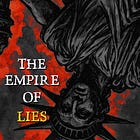

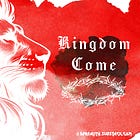
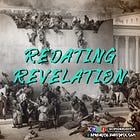

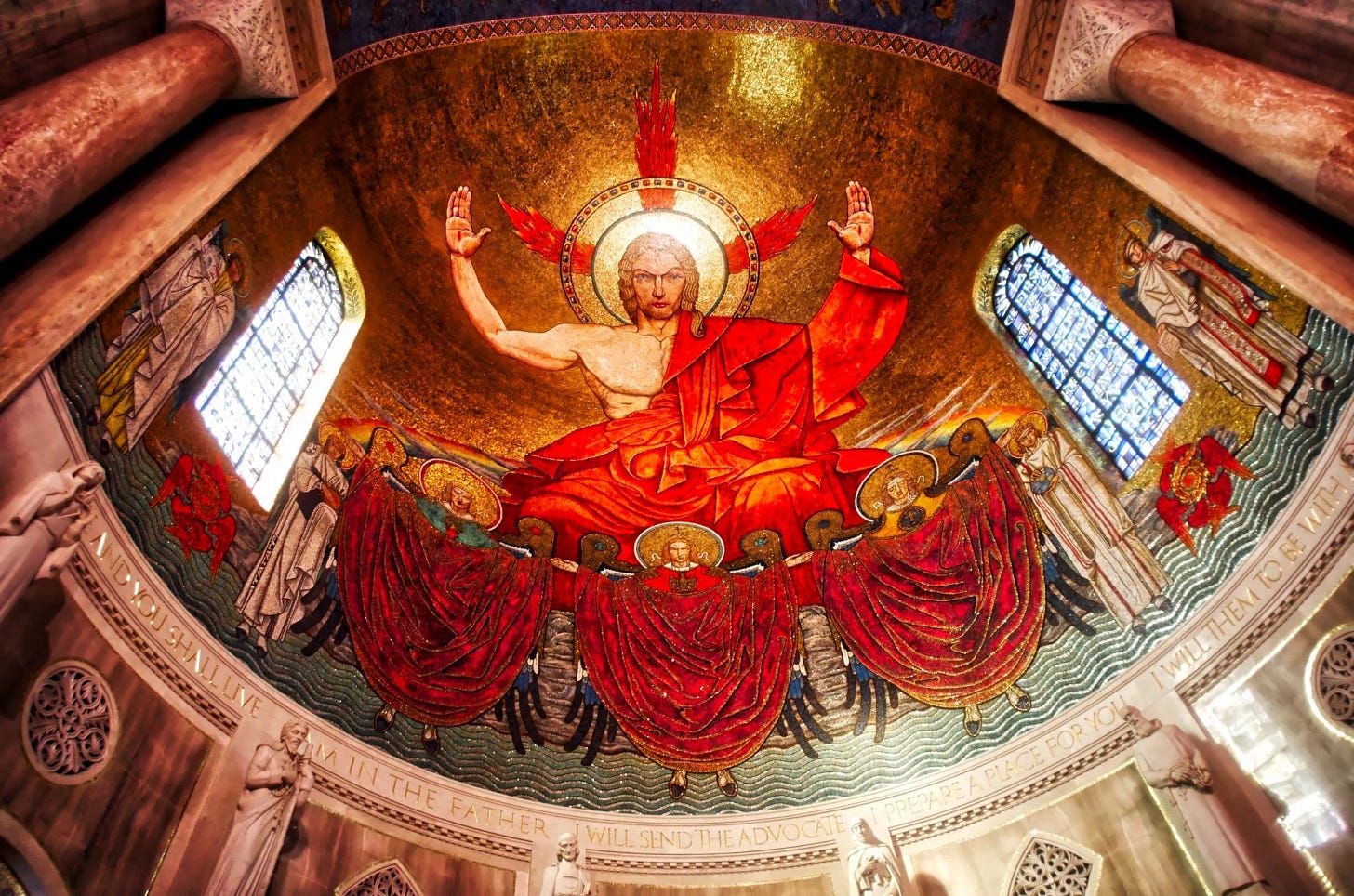



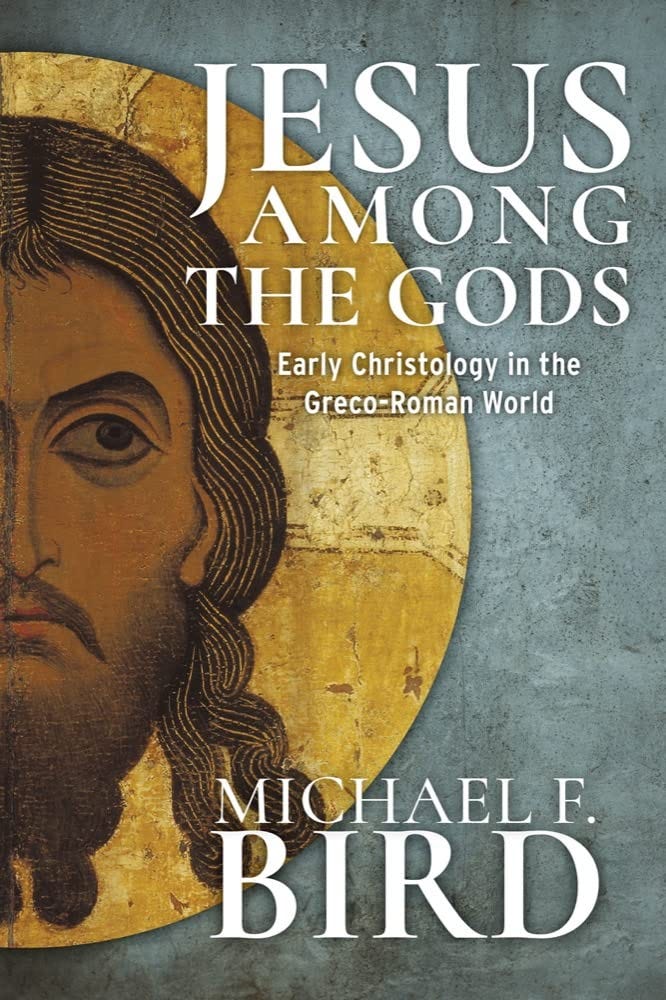

Never tolerate pedophiles, no matter what they are called, let me explain the obvious… here in my podcast episode:
https://open.spotify.com/episode/0E06rlVXZiNWVp4RKRLoaS?si=5vu2PY3jTdKs-L_42NwJkQ
John Hagee says there is 50 million Christian Zionists ready to fight for Israel. I would endeavor that we could convert 10 to 15% of these to the unfiltered truth of the word of God that you speak and write about. That may be wishful thinking on my part.